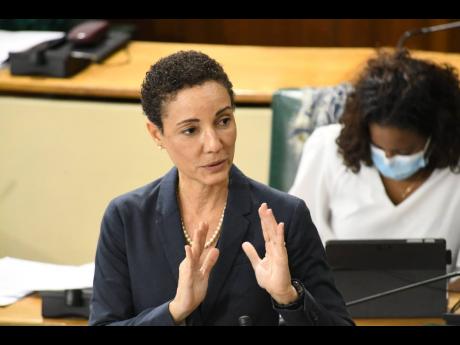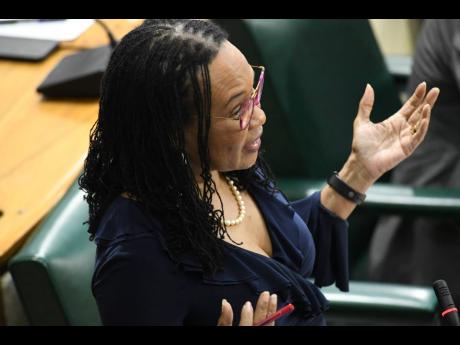Senate approves new electrical inspection regulations
The Electricity (Electrical Work, Registration and Licensing) Regulations, 2020, was approved in the Senate yesterday and will replace the archaic method of registering electricians.
Jamaica has been ailing for decades with limited numbers of certified, registered electricians and electrical inspectors, with only nine inspectors on the Government’s books to process thousands of applications annually.
The regulations aim to digitise, modernise and transform the electrical inspection process and seek to increase regulatory efficiency in its relation to electricians.
“In this context, Jamaicans will be assured of technically sound and compliant work conducted and passed by competent and regulated electricians and inspectors within a reasonable time frame,” said Kamina Johnson Smith, leader of government business in the Senate.
Under the Electric Lighting Act 1890, it was a requirement for electricity inspection to be conducted by the Government, which was undertaken by the Government Electrical Inspectorate (GEI) – a department under the minister responsible for energy, and the GEI headed by a chief electrical inspector, responsible for conducting safety inspections of all electrical installations.
Only those installations so certified were allowed to be connected to the country’s electricity system.
Electrical Regulator
In August 2015, the Electricity Act was promulgated, providing for the privatisation of the electricity inspection function and the establishment of a Government Electrical Regulator (GER).
The 1890 act was repealed with the passing of the Electricity Act 2015.
“The GER will be responsible for the appointment of a committee of examiners that will assume the functions previously carried out by the board of examiners,” Johnson Smith noted.
“The whole process for registration of electricians and how we access electricity has been somewhat archaic. It hasn’t kept pace with Jamaica’s developmental needs,” she observed.
Close to 35,000 applications are received annually for inspection with only nine certified inspectors available, creating a major drawback in how quickly buildings can be certified.
Johnson Smith said that the regulations would provide a framework leading to an increase in the number of licensed inspectors available.
Donna Scott-Mottley, the leader of opposition business, said that the intention of the regulations was clear, as it ensures that the public enjoys a certain level of protection.
She also lauded the planned digital platform for helping to revolutionise the service in Jamaica, calling it “admirable”, with opposition colleague Senator Sophia Frazer-Binns describing it as a “useful piece of legislation”.


